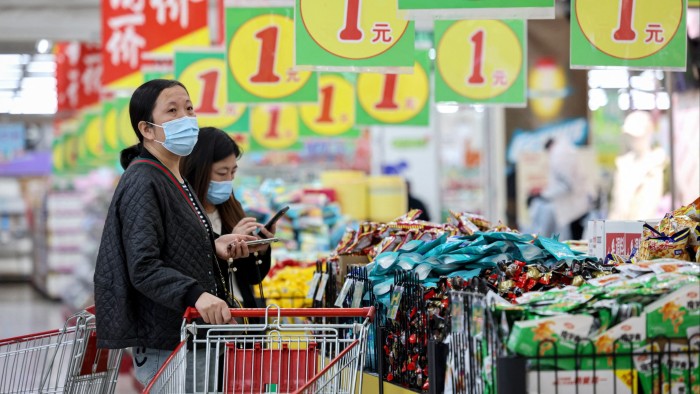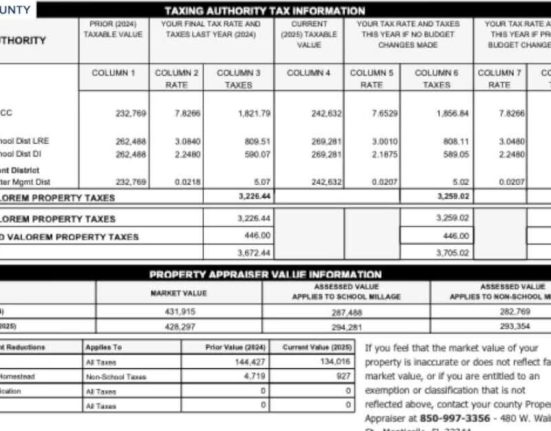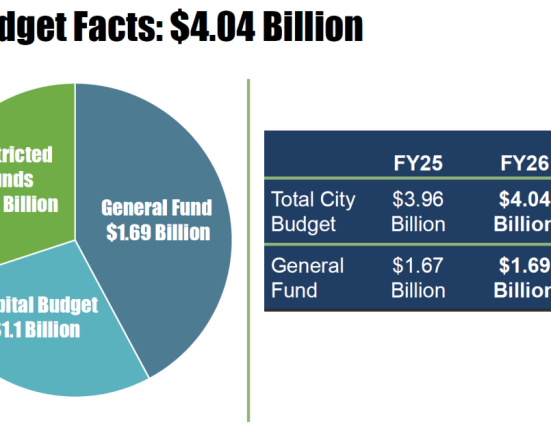Stay informed with free updates
Simply sign up to the Chinese economy myFT Digest — delivered directly to your inbox.
China is offering to cover part of the interest payments on some consumer loans, in policymakers’ latest move to boost tepid household spending and counter prolonged deflationary pressures in the world’s second-largest economy.
Under the plan, led by the finance ministry, China’s government will subsidise interest rates on some consumer loans for purchases worth up to Rmb50,000 ($7,000). Individuals will receive a 1 percentage point cut on interest rates, which are normally about 3 per cent for one-year consumer loans.
The plan is Beijing’s latest policy aimed at stimulating household demand, which has lagged amid a years-long property sector slowdown and broad slump in consumer confidence.
Rather than institute a broader rate cut, which would squeeze bank profits, China’s finance ministry will cover 90 per cent of the cost of the subsidies, with the remaining 10 per cent coming from local governments. Chinese lenders’ interest margins have already fallen to record lows this year.
Businesses in sectors such as catering and tourism will also be eligible to apply for interest rate subsidies of up to 1 percentage point on loans of up to Rmb1mn, according to a joint statement late on Tuesday from nine government departments, including the finance ministry and the central bank.
The statement said the consumer loan interest rate subsidies were intended to “reduce financing costs” for service sector businesses and “boost the consumer market”.
“Supporting the development of service consumption is beneficial for stabilising and expanding employment,” said Wang Bo, a deputy director at China’s commerce ministry on Wednesday.
Chinese policymakers last year pivoted away from investment-driven economic stimulus towards trying to boost consumption, as the world’s second-biggest economy grapples with slowing growth and persistent deflation.
Chinese leader Xi Jinping last month issued an unusually direct criticism of over-investment in sectors such as electric vehicles, which local governments have relied on to drive growth but officials blame for creating overcapacity and driving down prices.
That message was echoed by the politburo, the Chinese Communist party’s top decision-making body, which emphasised the need to stimulate domestic demand as industry, which has been dependent on exports for growth, faces increasing disruption from US President Donald Trump’s trade war.
Liao Min, vice-minister of finance, said on Wednesday that authorities would consider extending the duration of the one-year subsidies and expanding the number of eligible sectors.
Lynn Song, chief China economist at ING, said the impact of the scheme would be “positive but somewhat limited” because the measures targeted smaller loans for purchases of goods such as vehicles or home appliances.
Under an existing “trade-in” scheme, Chinese buyers can receive subsidised prices when they upgrade old goods such as smartphones, air conditioners and rice cookers for newer models.
Economists said the loan subsidies to the service sector would also help to increase demand, but the core challenge remained turning around household confidence.
“Overall, Chinese consumption is not very heavily credit fuelled, as Chinese households tend to have a rather high savings rate,” Song said. “Unlocking these savings by restoring confidence would likely be a bigger game changer, but that is obviously a lot harder to do.”
Chinese equities rallied on Wednesday, the benchmark CSI 300 index of Shanghai- and Shenzhen-listed stocks rising 0.9 per cent while Hong Kong’s Hang Seng index gained 1.9 per cent.
Additional reporting by William Sandlund in Hong Kong







